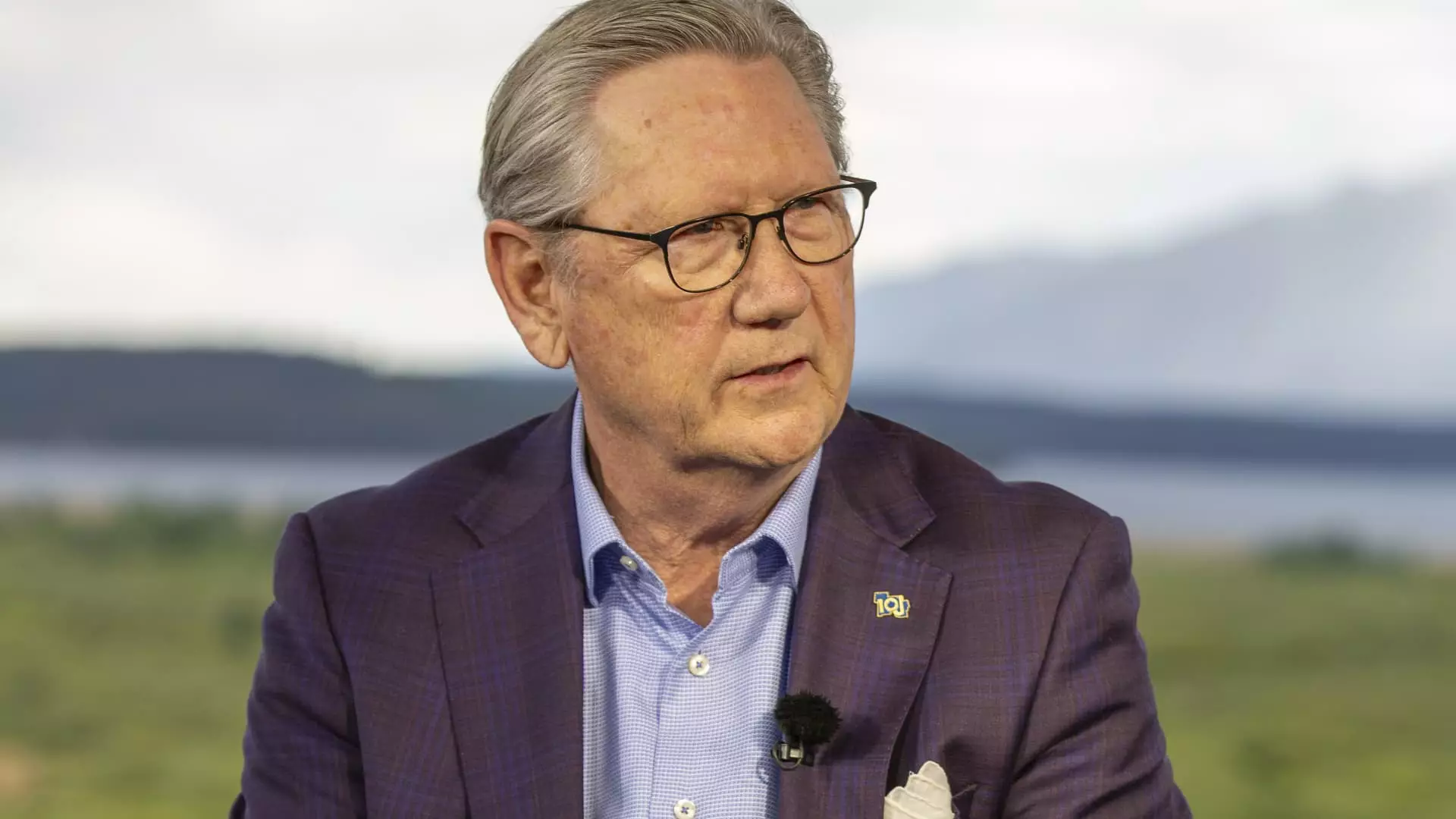The recent statements from Jeffrey Schmid, President of the Kansas City Federal Reserve, reflect a crucial internal debate about the trajectory of U.S. monetary policy. Yet, beneath this apparent prudence lies a troubling reality: the Federal Reserve is increasingly influenced, directly or indirectly, by political forces rather than solely by economic data and its mandate. Schmid’s reluctance to cut rates in September, citing the need for concrete evidence and caution, underscores the significance of responsible policymaking. However, the very fact that this debate occurs amidst external pressures from politicians and special interest groups exposes a fundamental vulnerability in the Fed’s independence. The danger lies not just in immediate policy missteps but in erosion of citizen trust, which is paramount for effective economic governance. When political narratives overshadow data-driven decisions, the credibility of the central bank, and thus its ability to stabilize the economy, is compromised.
Politics Invading the Realm of Central Banking
The involvement of figures like former President Donald Trump and the Housing Finance Agency’s William Pulte in attacking Fed officials, specifically Lisa Cook, reveals a disturbing trend: the blurring of lines between political agendas and monetary policy. Donald Trump’s vocal demands for resignations and accusations of misconduct, based on allegations that appear legally dubious, set a dangerous precedent. Such politicization risks transforming the Federal Reserve from a technocratic institution into a pawn in electoral battles. When the central bank becomes entangled with personal attacks and partisan finger-pointing, it weakens its moral authority to manage inflation, unemployment, and economic stability independently. Moreover, these turbulent distractions threaten to undermine investor confidence and market stability—especially when policymakers are seemingly more concerned with political survival than sound economic stewardship.
The Consequences of Eroding Institutional Independence
A central tenet of effective economic management is the Fed’s independence from political interference. It ensures that decisions are based on empirical evidence and long-term stability rather than short-term political gains. Yet, recent events indicate a decline in this vital independence. Politicians pushing for lower rates to appease voters or to bolster sectors like housing distort the natural balance observed in free-market economies. The narrative around tariffs not fueling inflation, promoted by certain political factions, also complicates the Fed’s task of managing inflation expectations. These pressures can lead to misaligned policies, such as premature rate cuts or hikes, which can fuel unintended inflation spikes or stifle growth. The central bank’s credibility hinges on a clear separation from partisan influences, especially during times when political interests threaten to override economic rationality.
The Fragility of Trust in Monetary Governance
Public trust is the bedrock upon which monetary policy stability rests. The Fed’s reputation as an impartial institution is jeopardized when its personnel become embroiled in controversy or accused of misconduct without clear evidence. The ongoing conflicts and allegations surrounding Lisa Cook threaten to diminish public confidence further, especially when combined with politically motivated narratives designed to tarnish the institution’s independence. This erosion of trust has tangible consequences: it can lead to higher borrowing costs, increased market volatility, and a disconnect between Fed actions and public understanding. The challenge for the Federal Reserve is not only to resist political pressures but to rebuild and safeguard the integrity of its decision-making process. Transparency, accountability, and unwavering commitment to empirical evidence are vital to restoring its legitimacy in the eyes of a skeptical populace.
Balancing Prudence and Responsiveness in a Politicized Environment
While Schmid emphasizes the importance of waiting for more definitive economic data before easing rates, the broader issue is the Fed’s ability to navigate a landscape rife with external influences. The temptation during times of economic uncertainty or political turbulence is to capitulate to demands for quick fixes, but such short-term thinking risks long-term damage. The Federal Reserve must preserve its role as a prudent guardian of economic stability, resisting the siren call of populist or partisan pressures that promise immediate gains at the expense of sustainability. Central bank independence, combined with a renewed focus on transparent decision-making and clear communication, is essential. Policymakers must assert their expertise and uphold their independence, even as political storms swirl around them. Only then can the Fed truly serve the nation’s best interests, regardless of the prevailing political winds.

